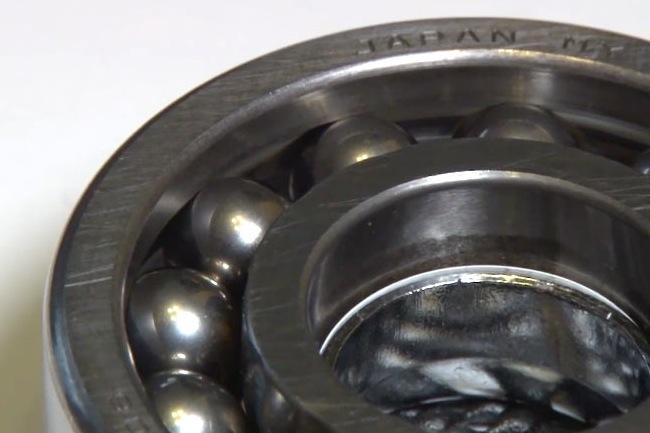
A Japanese engineering firm by the name of Coo Space has reportedly developed a new type of bearing that spins with up to 10 times less friction than the bearings we currently use — and it manages to do so without the aid of grease or any other sort of lubrication.
Thing is, most ball bearings rely on things called retainers to hold their balls in place. A retainer is essentially a small cage made of metal or plastic, which fits around the balls and keeps them from bumping into each other. This spacing is crucial to the bearing’s smooth operation — but it also introduces a little bit of additional friction into the system, which is typically remedied with grease.
Coo Space’s Autonomous Decentralized Bearing, on the other hand, doesn’t require any of that stuff. Instead of using a retainer to maintain the space between the bearing’s spheres, the ADB uses a stunningly simple design feature: divots. A series of small indentations to the surface of the outside rail cause the balls to consistently slow down and speed up ever so slightly, effectively preventing them from clashing into each other as they roll around — even without a retainer cage to hold them in place. No cage means less friction, and less friction means the bearings require less energy to rotate.
Right now they only exist as prototypes, but Coo Space is reportedly working with manufacturers to bring them out of the lab and into the market. If realized, bearings like this could lead to super-efficient car wheels, industrial machines that require far less maintenance, and bikes that can coast down a flat street for miles and miles.



